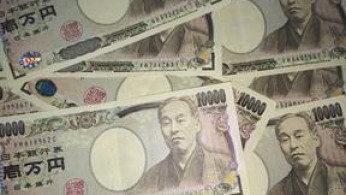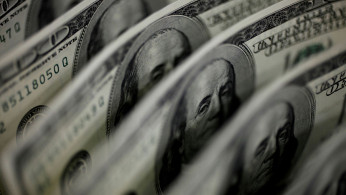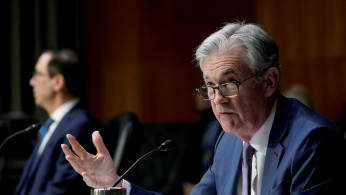Jerry Lin

The Latest
-
Yen Plunges as Traders Bet on Weaker Currency Amid Prime Minister Ishiba’s Dovish Turn
The yen carry trade is once again drawing attention from global investors after Japanese Prime Minister Shigeru Ishiba's recent comments jolted markets. Traders are betting on further yen weakness, driven by signals that Japan is not ready for additional interest rate hikes. Ishiba's dovish stance has led to a resurgence in carry trades, where investors borrow low-interest yen to invest in higher-yielding assets, a strategy favored by hedge funds. 
The yen carry trade is once again drawing attention from global investors after Japanese Prime Minister Shigeru Ishiba's recent comments jolted markets. Traders are betting on further yen weakness, driven by signals that Japan is not ready for additional interest rate hikes. Ishiba's dovish stance has led to a resurgence in carry trades, where investors borrow low-interest yen to invest in higher-yielding assets, a strategy favored by hedge funds. -
Oil Prices Surge Amid Escalating Israel-Iran Conflict, Global Supply Faces Uncertainty
Oil prices edged higher in the wake of escalating conflict in the Middle East, as concerns over potential disruptions to crude supplies weighed on the market. Investors are closely watching the impact of ongoing hostilities between Israel and Iran, which have spilled over into neighboring regions. Brent crude futures rose 0.87% to $74.54 a barrel, while U.S. West Texas Intermediate crude futures gained 1.03%, closing at $70.82 per barrel. 
Oil prices edged higher in the wake of escalating conflict in the Middle East, as concerns over potential disruptions to crude supplies weighed on the market. Investors are closely watching the impact of ongoing hostilities between Israel and Iran, which have spilled over into neighboring regions. Brent crude futures rose 0.87% to $74.54 a barrel, while U.S. West Texas Intermediate crude futures gained 1.03%, closing at $70.82 per barrel. -
Yen Plummets as Japan’s New Prime Minister Signals No Rate Hike This Year
The Japanese yen tumbled on Wednesday after newly appointed Prime Minister Shigeru Ishiba stated that Japan's economy isn't prepared for further interest rate hikes, triggering a sharp selloff in the currency markets. The yen plunged approximately 1.8% against the U.S. dollar, reaching a session low of 146.26 per dollar in New York trading, marking its largest single-day drop since February 2023. 
The Japanese yen tumbled on Wednesday after newly appointed Prime Minister Shigeru Ishiba stated that Japan's economy isn't prepared for further interest rate hikes, triggering a sharp selloff in the currency markets. The yen plunged approximately 1.8% against the U.S. dollar, reaching a session low of 146.26 per dollar in New York trading, marking its largest single-day drop since February 2023. -
U.S. Private Payrolls Outpace Expectations in September; Dollar Rises
The U.S. labor market showed stronger-than-expected growth in September, with private sector payrolls increasing by 143,000, according to a report by payrolls processing firm ADP. 
The U.S. labor market showed stronger-than-expected growth in September, with private sector payrolls increasing by 143,000, according to a report by payrolls processing firm ADP. -
Chinese Stock Rally Triggers $7 Billion Loss for U.S. Short Sellers
The recent rally in Chinese stocks, driven by Beijing's aggressive stimulus measures, has inflicted significant losses on traders who bet against U.S.-listed Chinese companies. According to a report by S3 Partners, short sellers have faced a staggering $6.9 billion in mark-to-market losses as Chinese equities have surged in recent weeks. 
The recent rally in Chinese stocks, driven by Beijing's aggressive stimulus measures, has inflicted significant losses on traders who bet against U.S.-listed Chinese companies. According to a report by S3 Partners, short sellers have faced a staggering $6.9 billion in mark-to-market losses as Chinese equities have surged in recent weeks. -
Gold Pauses After Rally as Markets Await U.S. Economic Data
Gold prices took a breather on Wednesday, pulling back slightly after a rally driven by escalating tensions in the Middle East. 
Gold prices took a breather on Wednesday, pulling back slightly after a rally driven by escalating tensions in the Middle East. -
Gold Prices Surge Amid Geopolitical Tensions and Crumbling Physical Demand
Gold prices have reached unprecedented heights, climbing over 1% in response to escalating geopolitical tensions in the Middle East, specifically fears of an imminent ballistic missile attack from Iran on Israel. Spot gold soared to $2,661.99 per ounce, just shy of its record high of $2,685.42 reached on September 26. 
Gold prices have reached unprecedented heights, climbing over 1% in response to escalating geopolitical tensions in the Middle East, specifically fears of an imminent ballistic missile attack from Iran on Israel. Spot gold soared to $2,661.99 per ounce, just shy of its record high of $2,685.42 reached on September 26. -
Dollar Gains Ground as Powell Signals Caution on Rate Cuts, Yen Steadies Amid Political Shift
The U.S. dollar strengthened broadly on Tuesday as Federal Reserve Chair Jerome Powell tempered expectations of aggressive interest rate cuts, pushing back against the speculation that has gripped financial markets in recent weeks. The dollar index rose by 0.4%, reaching 101.11, while Powell's remarks reshaped the outlook for future monetary policy as traders recalibrated their expectations ahead of a crucial week for economic data. 
The U.S. dollar strengthened broadly on Tuesday as Federal Reserve Chair Jerome Powell tempered expectations of aggressive interest rate cuts, pushing back against the speculation that has gripped financial markets in recent weeks. The dollar index rose by 0.4%, reaching 101.11, while Powell's remarks reshaped the outlook for future monetary policy as traders recalibrated their expectations ahead of a crucial week for economic data. -
Oil Prices Drop 17% in Q3 as Global Demand Falters, Middle East Risks Loom
Oil prices experienced significant declines in the third quarter, dropping by 17% as concerns over a potential conflict escalation in the Middle East were outweighed by slowing global demand. On Monday, Brent crude futures for November delivery settled at $71.77 per barrel, marking a 9% drop in September alone. West Texas Intermediate (WTI) futures also fell slightly, ending at $68.17 per barrel, capping a quarter that saw a 16% decline. This marks the largest quarterly drop for WTI since the third quarter of 2023. 
Oil prices experienced significant declines in the third quarter, dropping by 17% as concerns over a potential conflict escalation in the Middle East were outweighed by slowing global demand. On Monday, Brent crude futures for November delivery settled at $71.77 per barrel, marking a 9% drop in September alone. West Texas Intermediate (WTI) futures also fell slightly, ending at $68.17 per barrel, capping a quarter that saw a 16% decline. This marks the largest quarterly drop for WTI since the third quarter of 2023. -
Fed Chair Powell Signals More Rate Cuts but Warns Against Aggressive Moves
Federal Reserve Chairman Jerome Powell signaled on Monday that while more interest rate cuts are expected this year, the central bank is taking a cautious approach and is not in a rush to implement aggressive measures. Speaking at the National Association for Business Economics conference in Nashville, Powell emphasized that the Federal Reserve will continue to let economic data guide its decisions, rather than adhering to a predetermined path. 
Federal Reserve Chairman Jerome Powell signaled on Monday that while more interest rate cuts are expected this year, the central bank is taking a cautious approach and is not in a rush to implement aggressive measures. Speaking at the National Association for Business Economics conference in Nashville, Powell emphasized that the Federal Reserve will continue to let economic data guide its decisions, rather than adhering to a predetermined path.